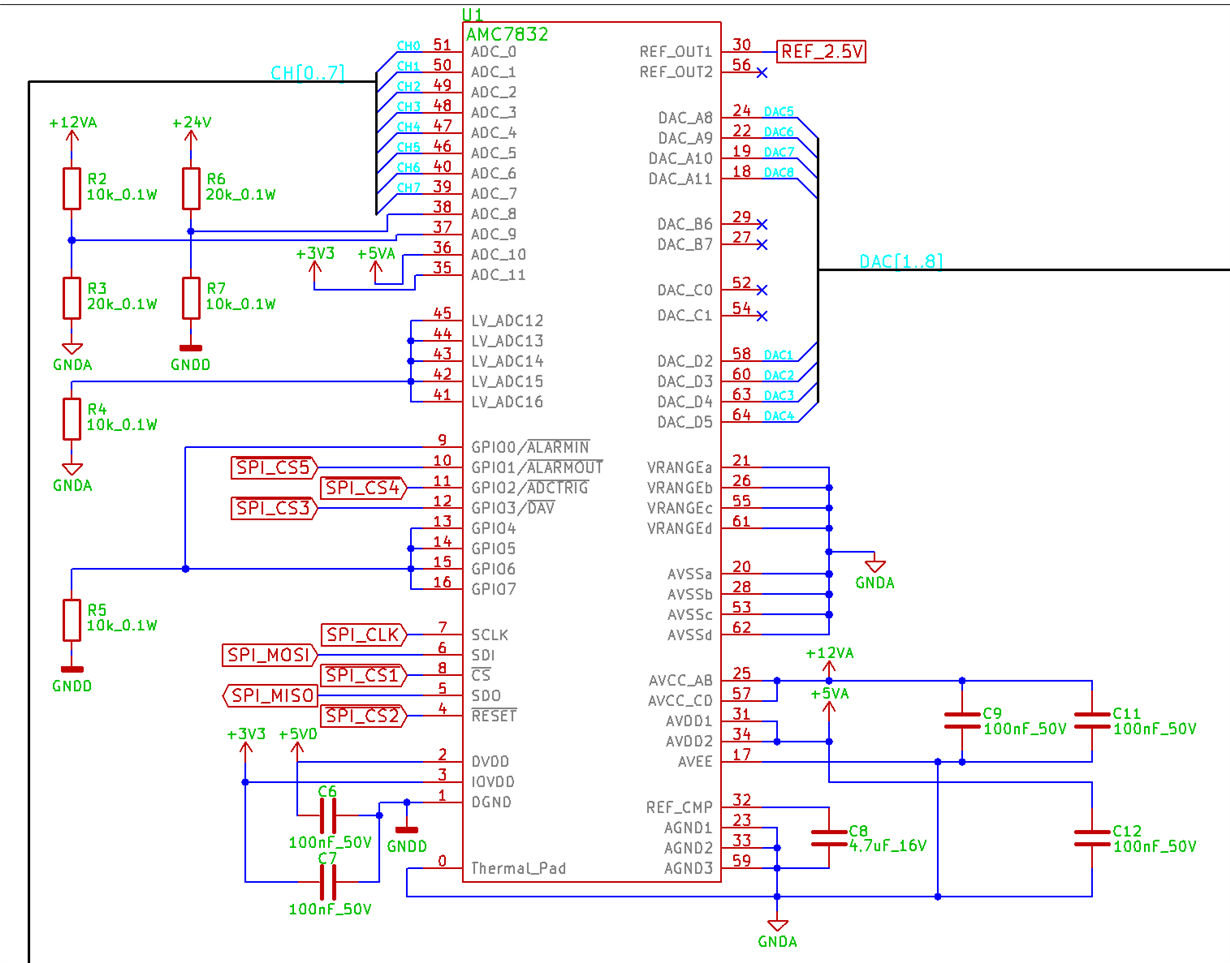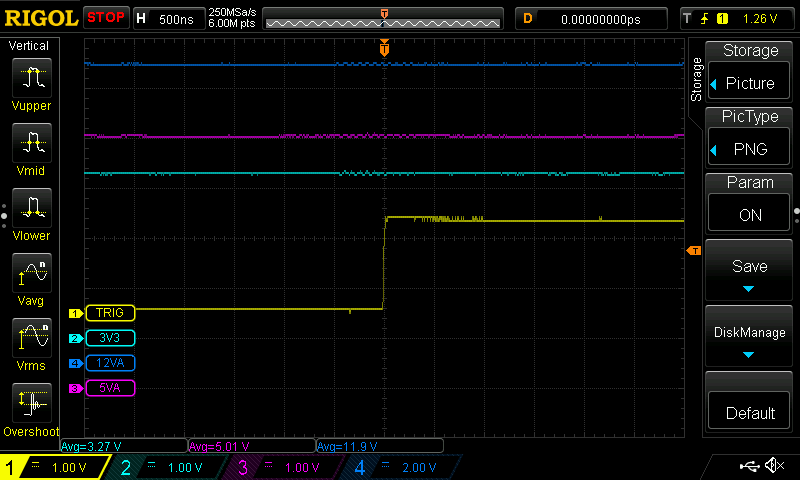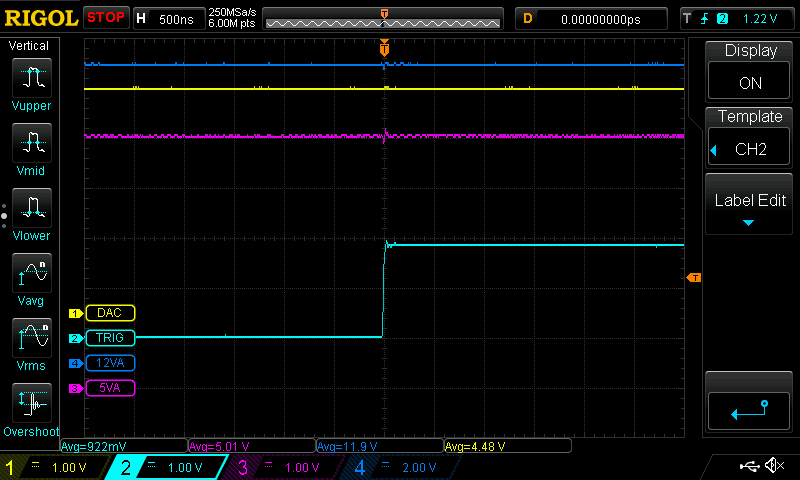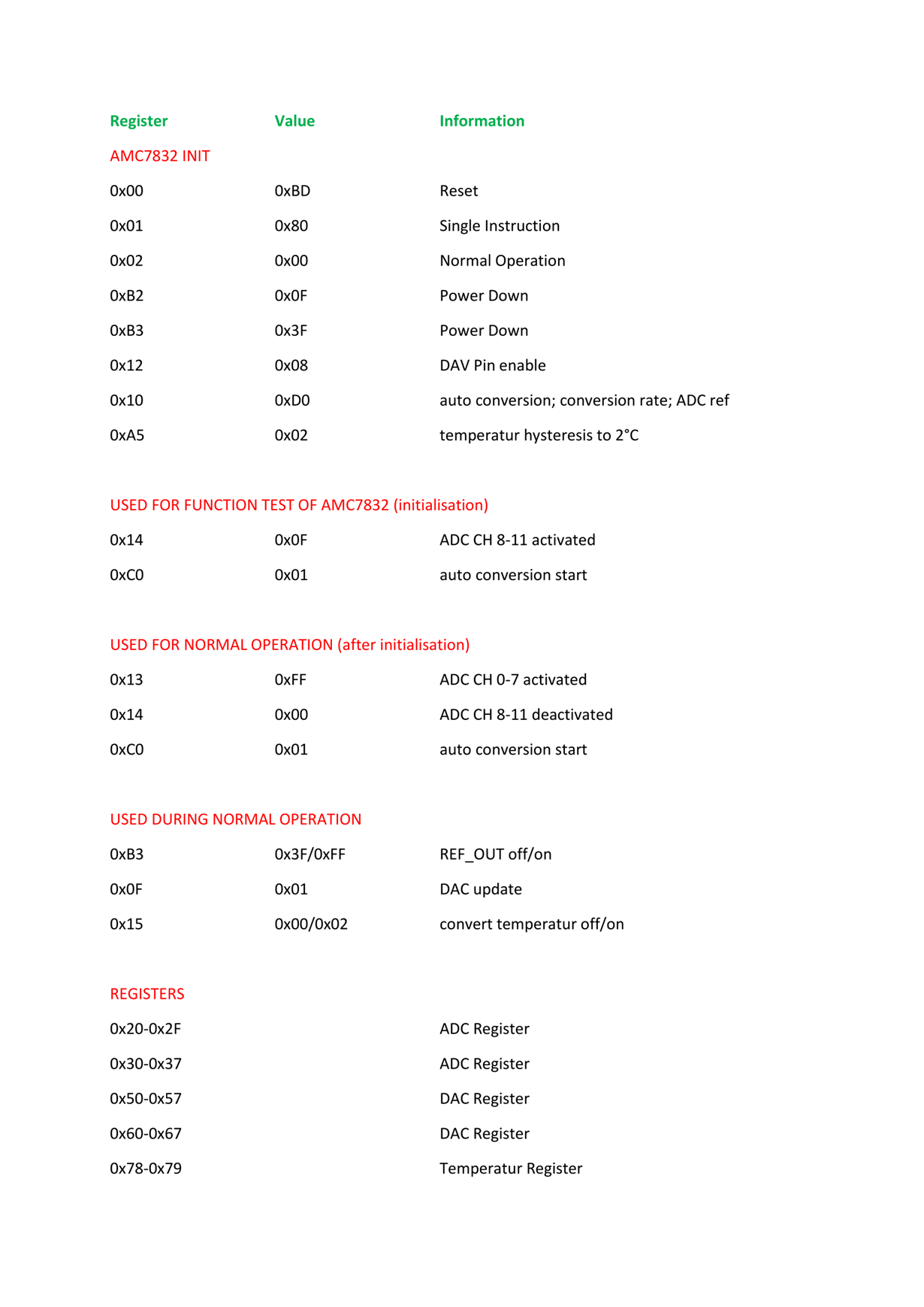Hello!
I am using the AMC7832 for an analog expension card with 8 analog inputs and 8 analog outputs. To test the fuction, i have connected the 8 DACs to the 8 ADCs.
My problem is that after a short time (average 30 seconds) the output of the DACs changes to 0V (i am using the DACs for the range of 0 to +10V).
I had the same problem with the ADCs, but i have solved the problem over the software.
Maybe someone can help me to solve the problem.
THX,
Tobi





